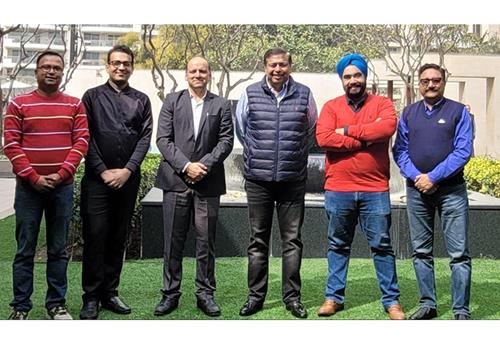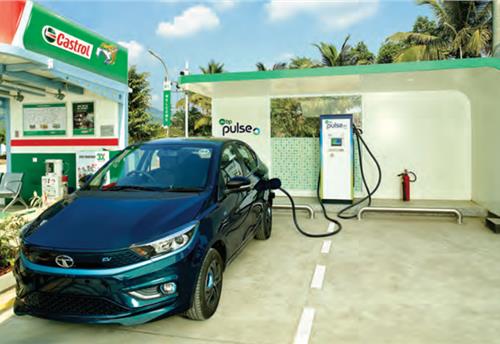Lear Auto India in the driver's seat
With key business from M&M, Nissan and Ford, Lear India is positioned comfortably in seating systems even as it plans to grow its electrical business. Brian de Souza visits the Pune plant.
At Lear Automotive India’s main plant on the Talegaon-Chakan road, we are taking a guided tour of the facility that makes seats for some of the biggest Indian auto brands. The state-of-the-art facility is part of Lear’s 10 India units seeing investments of about $45 million (Rs 270 crore) going into seat making and vertical integration.
The one section that catches this correspondent’s eye is the Dexterity Training Centre, where those joining Lear are given an induction on the processes of seat making. It is a clear statement of how people matter to Lear, and the company’s clear focus on quality and comfort. Amar Arepalli, vice-president and managing director, who shows us around, says: "Seats are the last things that go into a vehicle but one on which the owner sees first and spends most of his time.”
WELL PLACED LOGISTICALLY
Lear Automotive India caters to Ford India, Mahindra & Mahindra, GM India (with which it started its India innings) Volkswagen India, Nissan Motor India, Hyundai Motor India and Tata Motors. It has plants all the way up north in Haridwar (catering to the Mahindra Bolero) down to Halol (GM India), Nashik (for the Scorpio and Xylo) and in Chennai (Nissan and Ford).
A short distance from the main Pune plant is a design centre staffed by 600 engineers who work with clients here and overseas. “We can do engineering and prototyping, source and deliver from here,” explains Arepalli.
It has been a tough year for Lear Automotive India. Thanks to falling volumes, doing business was challenging. However, one positive factor was the launch of the Ford EcoSport that gave Lear the much-needed volumes. While Lear earlier had Ford’s Endeavour business, catering to the EcoSport was “a true challenge as it was launched in the middle of the year and was our shining star, reducing the impact of the slowdown," says Arepalli.
While all its customers were impacted by the slowdown, the company did reasonable well with the Mahindra XUV500, Nissan and VW India. Business with BMW India, from Lear’s Chennai plant, was also impacted.
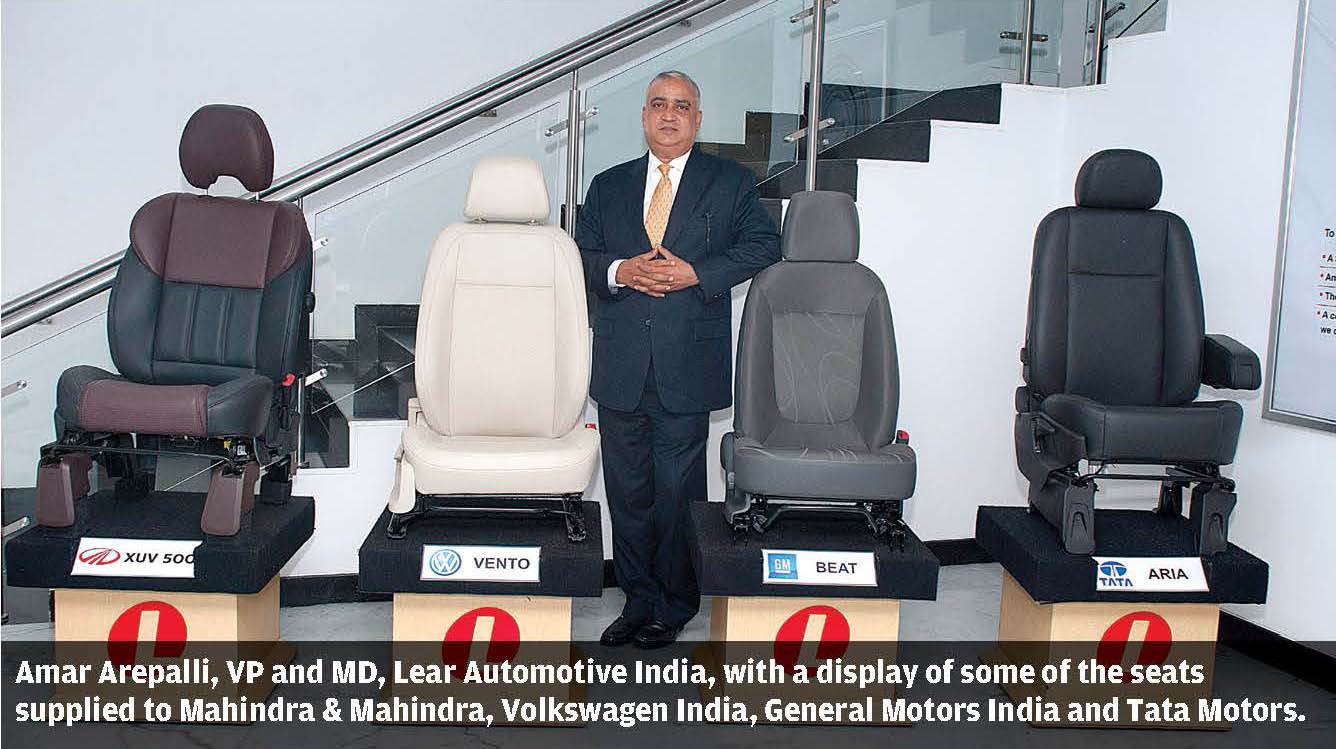
CONSERVATIVE APPROACH
As a policy, Arepalli says, Lear Automotive India takes a conservative approach to business. “We tend to factor in 15-20 percent less volume as we incorporate our own analysis of the market and buying power as we look at the dynamics of the year," he explains.
The company though has not held back on investments. It has invested in foam lines, cut- and-sew which it did not have before. This backward integration at Pune and Chennai helps Lear have a clear hold on its product specs and demands in an ever-demanding industry.
Going forward, Lear Automotive hopes that a stable central government will boost economic growth and buyer sentiments that will help the auto sector. In the current fiscal, Lear Automotive is supplying to a range of new vehicles that include a Scorpio refresh, one of the two M&M products due out in 2015, and some Nissan products that will roll out.
The supplier also has an export programme. As part of Lear’s worldwide mandate with Ford’s SUV programme (it supplies seats to the EcoSport in Brazil, China and Thailand), Lear Automotive India will ship seat components for the Russian-made EcoSport and whole vehicles to Europe. Lear seats will go into GM India’s Chevrolet Beat that is headed to Chile next year as well as a sedan from Mercedes-Benz India.
While Lear Automotive is proud of what it has done in seating systems where "we are well-positioned” going forward, the company wants to see more momentum in its electronics and electrical vertical where it makes products such as body control modules and stop-start products.
The challenges,as Arepalli explains, is "because the wire business is now a commodity, so getting into OEs with our cost structures is a challenge." Also, the Indian market for electronics is yet to mature. The market here has not demanded this level of electronics, says Arepalli.
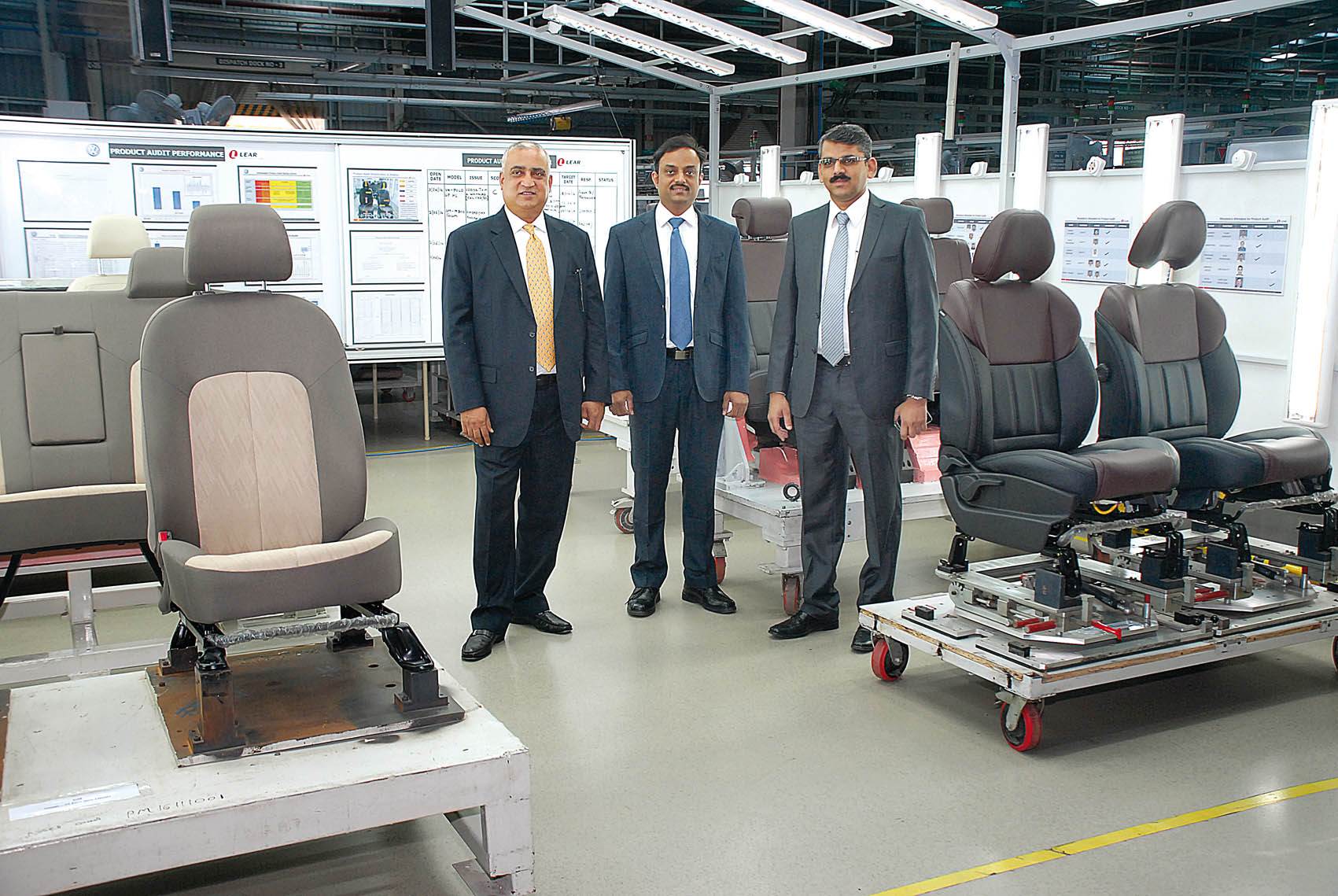
Amar Arepalli with Sandeep Jadhav – GM (operations) and Nitin Chaudhary, director – operations, Western India, in the seat audit room.
GLO-CAL CONNECT
Coming back to some of the rationale for its backward integration, Arepalli says that while the company has offered to hand-hold some of its Tier 2 suppliers, it faces the challenge of getting them acclimatised to global platforms. With Nissan’s volumes, things did change as the company was able to work with a player that was well-versed in quality and scale.
Today, Lear Automotive India makes most of the seat parts within its facilities as this gives it a handle on both quality and quantity. Moreover, it helps the company tap better into emerging India-specific seating systems.
As Arepalli says, the trends are towards use of leather as OEs are asking for it. The pull factors are comfort and luxury. Unlike other parts of the car, Arepalli says customers do have a kind of emotional connect with the car seat.
Automotive seating systems are also seeing lightweighting trends. Power seats, six-way power lumbar seats and headrests that move up and down are the future and Indian OEMs are incorporating these in their upcoming vehicles.
In the pecking order of Lear Automotive’s clients, Mahindra comes first, followed by Nissan Moor India and Ford India. Tata Motors is a small buyer with the company supplying the Aria with seats that were designed by Lear at its Bhosari design centre. There are also movements to alternative materials: eco-friendly fabrics, recycled material, use of soya foam and lightweight structures.
The importance of seats not only matters from a customer point of view but from a manufacturing perspective, sturdy seats are a key part of the vehicle crash testing process. Lear Automotive India uses 100 aluminium. The tipping point is graded material that has to be imported and naturally has cost implications. The company has embarked on efforts to localise this but will take some time before it is satisfied with the quality available.
Arepalli is a very much hands-on person. While the company conducts dealer visits along with OEs – and the Mahindra XUV500 was a starting point – the company along with OEs has been making assessment on comfort and long-term seating as also obtaining feedback from women. On weekends, Arepalli visits dealerships incognito and gives feedback that he may receive back to Lear’s engineering unit.
Worldwide, Lear has designed women-friendly for cars in which the driver-side seat has a cushion that comes with a loop which can be pulled up. This enables women drivers who carry large purses and bags to store these things, which are likely to fall off the seat in the event of the car being braked suddenly. The Chennai-made export model Nissan Micra come equipped with such seats from Lear.
PEOPLE POWER
For Lear, people are important. At the Chakan facility, employees can come for a short half-day visit to the facility where they are served lunch. The family is fetched and also dropped back home.
As Lear Corporation approaches its 100th anniversary in 2017, it wants to be bigger as well as focused on people training and leadership. That holds true for its India operations as well.
A Lear veteran himself, Arepalli graduated from Mysore and went to do his masters in manufacturing in US. Even before he graduated, he began working with Lear at a facility in Detroit. Arepalli has spent 22 years with the seatings manufacturer, having put in stints in Mexico, Thailand and China, and is proud of his role in putting together the India facilities. “When I joined Lear, we were a $1.4 billion company worldwide, today we are nearly $17 billion,” he signs off.
RELATED ARTICLES
Branded content: HL Klemove inaugurates first Local ADAS Radar Manufacturing Unit in India, marks a significant achievement in “Make in India” initiative
The inauguration ceremony was held in the presence of Vinod Sahay, President and CPO of Mahindra & Mahindra Ltd. and Dr....
BluWheelz to 'Green Up' logistics sector
With their EVs-as-a-service solution, the startup is playing it smart with costs and looking to electrify the entire seg...
BRANDED CONTENT: Spearheading the EV revolution in India
Jio-bp is a joint venture between Reliance Industries and BP PLC where both entities have married international expertis...





 30 Jul 2014
30 Jul 2014
 48044 Views
48044 Views



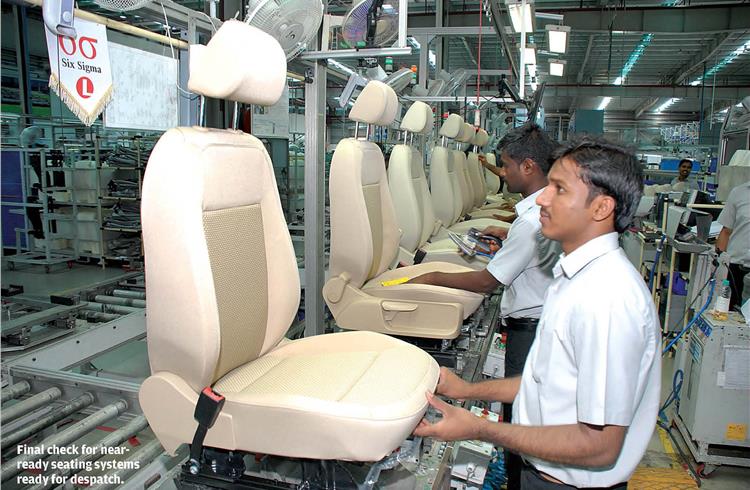
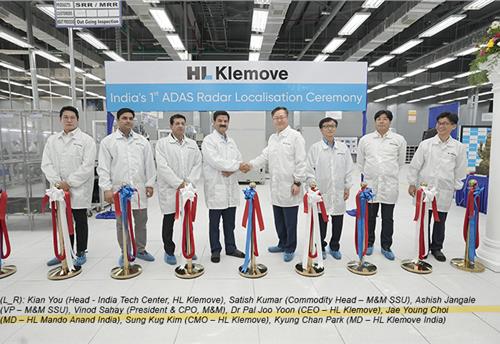
 Autocar Pro News Desk
Autocar Pro News Desk

